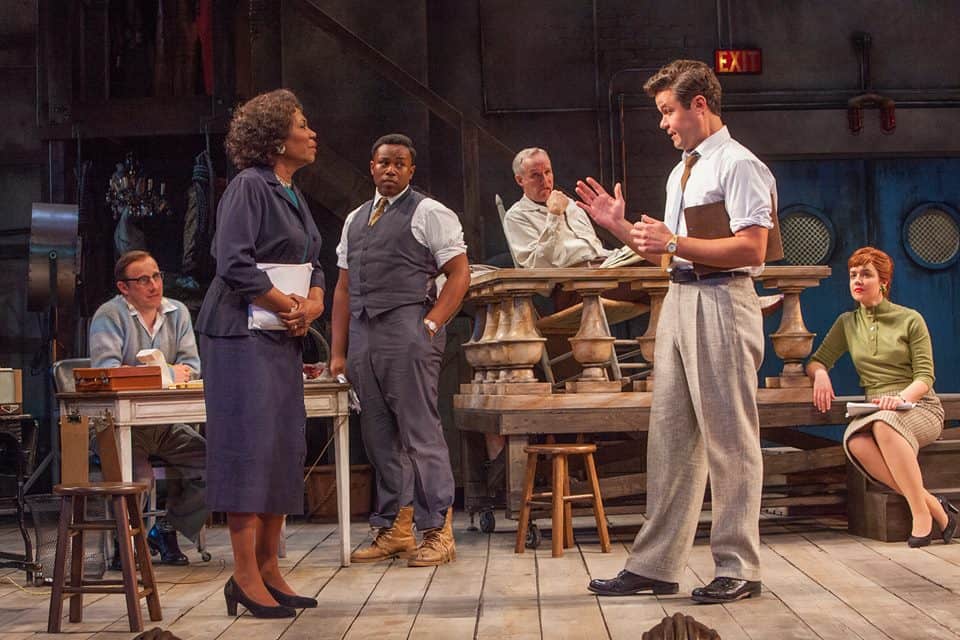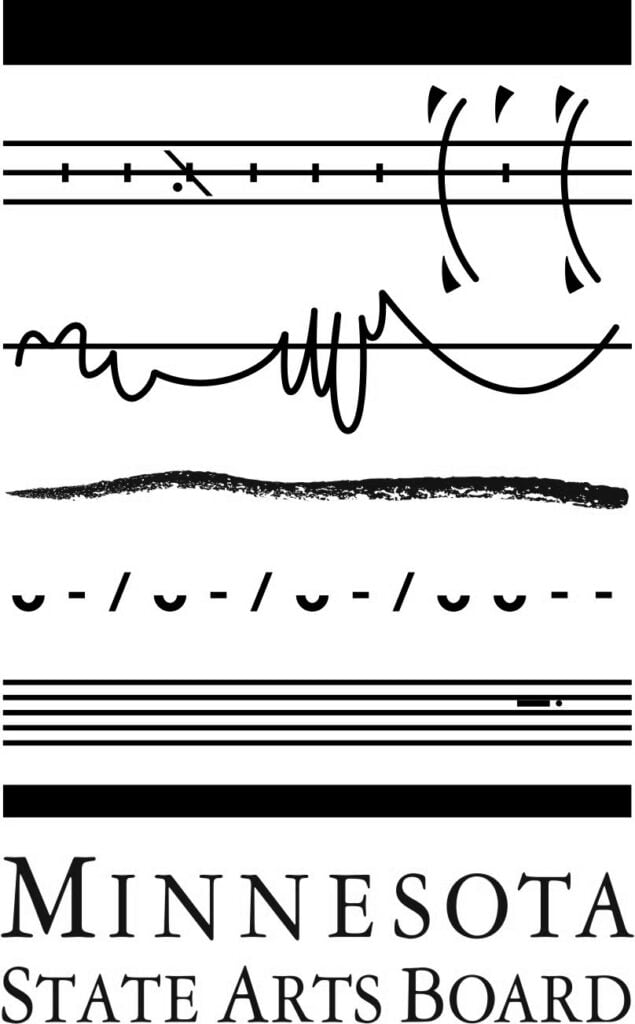Quote of the Day: Ever since I’ve know you, you’ve never been trouble. Says the director Al Manners (John Catron) to the actor Wiletta Mayer (Margo Moorer) who is playing a mother in the deep south in a play about a lynching. That line reminded me of a time when someone said to me, “That never bothered you before,” and my response was, “Well, it bothers me now.” There comes a time when you’ve bottled up your true feelings so long that they’ll either explode out of you, or kill you.

Kris L. Nelson (Eddie Fenton), Margo Moorer (Wiletta Mayer), Marcel Spears (John Nevins), Peter Thomson (Bill O’Wray), John Catron (Al Manners) and Chloe Armao (Judy Spears) in the Guthrie Theater’s production of Trouble in Mind, by Alice Childress and directed by Valerie Curtis-Newton. Scenic design by Jennifer Zeyl, costume design by Melanie Burgess, lighting design by ML Geiger. May 7 – June 5, 2016 on the McGuire Proscenium Stage at the Guthrie Theater, Minneapolis. Photo by Keri Pickett.
In the play Trouble in Mind by Alice Childress, what has been bothering her about the entertainment business explodes out of her, onto the script, into the hands of the actors, spills off the page onto the stage, and over the audience. She’s had enough. The actors in her play have had enough. We’re watching a rehearsal of a play called Chaos in Belleville. “Keep him on his knees,” says the director, about the young black man wrongfully accused of a crime. “Tell him to give himself up,” he shouts at the woman playing his mother. She looks at him. She looks inside herself and quietly says, “Give himself up…give up.” “No!” she says. “A mother wouldn’t do that. A mother wouldn’t send her son into the lion’s mouth.” And, so, the trouble begins when the actors no longer want to play by the unwritten rules. They are challenging the script, the director, and the norm. That was 1957. Alice Childress was causing Trouble, so much that the play never made it to Broadway because she refused to make changes that would make the white audience and producers more comfortable.
It takes a brave and talented writer like Alice Childress to bring light to this kind of Trouble. It takes a director like Joe Haj to turn the light on. In some ways this play feels like an acknowledgement by the Guthrie Theater that they have done wrong in the past, having produced a majority of plays written by dead white guys, starring white men, and filling the seats with a white audience. It was in the Dowling Studio, however, that I started to see the rainbow effect of theater with shows like Yellow Fever, Are you Now or Have you Ever Been, The Brothers Size, and Buzzer.
Have roles changed for non-white actors since 1957? Have audiences evolved? Do we expect certain things from our entertainment whether in film, on stage, or in print? Bringing awareness to an issue is a first step. I brought my teenage sons to this performance. Eric asked, “Are we heading straight home after the performance?” I looked at the program and noted there was no post play discussion. “Yes,” I said, “Since they don’t have a post play discussion.” “We’ll have our own discussion, then,” he said. My boys are thinkers, readers, and observers of life. Our post play discussion started on our descent on the escalators, continued on our way to our car, and for several miles during our trip home. Trouble in Mind gives you much food for thought and courses for discussion. It is wonderful, powerful, sad, intelligent, and fascinating. It was the shortest two hour play I’ve ever attended.

Al Manners (John Catron), Judy Sears (Chloe Armao), John Nevins (Marcel Spears), Sheldon Forrester (Cleavant Derricks), Millie Davis (Austene Van) and Wiletta Mayer (Margo Moorer).
I could write essays about each character and the fantastic, realistic performances by all the actors. Hats off to the director Valerie Curtis-Newton for giving us so much to see and experience. Some of those lines gripped us and took our breath away. The entire audience was still and focused during Sheldon’s (Cleavant Derricks) monologue about a lynching that he witnessed as a child. This is a play I would like to see again. The first time you experience a powerful piece of literature like this, you see one layer, focus on the main events, but so much more is going on with the characters and how they’re interacting. You might hear a line in a new way, or one you missed during another viewing.
Trouble in Mind by Alice Childress, directed by Valerie Curtis-Newton, and produced by the Guthrie Theater is playing through June 5, 2016 on the McGuire Proscenium Stage.
Go. Create. Inspire!
Journaling Prompt: How far would go, what would you do or comprise, to land a roll, publish a book, or advance in your career? What would it take to get you to speak out and cause Trouble about it?













Enjoy your post. Yes brave writer. Kudos to her.
Thanks, Juneta
Ironic that it couldn’t get a lot of traction when it was originally because of race. Isn’t it great that for the most part, that doesn’t matter anymore? (At least, doesn’t matter to me – people are people.)
You’ve done right by your boys that they want to discuss it on their own.
Thanks, Alex.
I love that you write about the stage and the plays performed upon them, but you hinted at writing about the characters. Don’t tease me. Pick your favorite and write about why you love/hate them so. I’d love to know that too. 🙂
Anna from elements of emaginette
Thanks, Anna. And, for your encouragement to write about these characters. They have so much depth.
Oh how times have changed, haven’t they? I didn’t realize how much diversity was a problem in children’s fiction until it became a movement. There still is a lot of work that needs to be done, but at least we’re aware of the problem.
What a fascinating concept for a production! You make me wonder if it will be performed in my area any time in the near future.